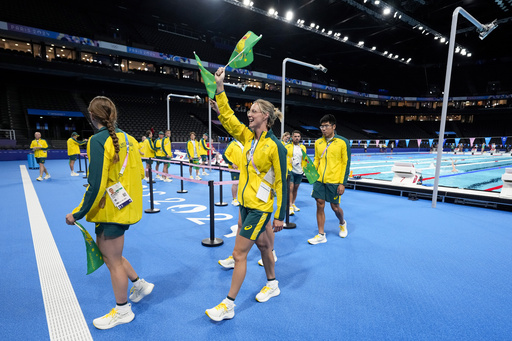In Nanterre, France, the excitement surrounding Olympic swimming is palpable, even though the times achieved so far have not been as fast as expected. In the first four days of the competition at La Defense Arena, no world records were broken. The slightly shallower depth of the pool seems to be a contributing factor to the slower times, causing more waves and turbulence. Despite this, American swimmer Katie Ledecky remains focused on racing and not dwelling on the pool conditions.
Looking ahead, World Aquatics has mandated a minimum depth of 2.5 meters for swimming and water polo events, but the temporary facility approved for the Paris Olympics has a depth of 2.2 meters. Despite the challenges posed by the pool, swimmers are adapting to the conditions. The atmosphere at the venue, with over 15,000 spectators in an indoor stadium usually used for rugby matches, has been widely praised.
Australian swimmer Kyle Chalmers believes that the pressure of the moment, rather than just the pool conditions, may be affecting some athletes’ performances. The competitive environment and high expectations at the Olympics can add to the stress felt by swimmers, contributing to slower times. Notably, some swimmers are not achieving their usual speeds at the Games compared to previous events.
Historically, swimming events at the Olympics have seen numerous world records broken. However, the trend of record-breaking performances has fluctuated over the years. The slower times in Paris may be surprising, but for many athletes, the focus remains on winning races rather than setting new records. The spirited support from passionate fans in the arena has provided an additional boost to swimmers competing at the Games. Ultimately, while the times may not be record-breaking, the thrill of victory is what matters most to the competitors.


